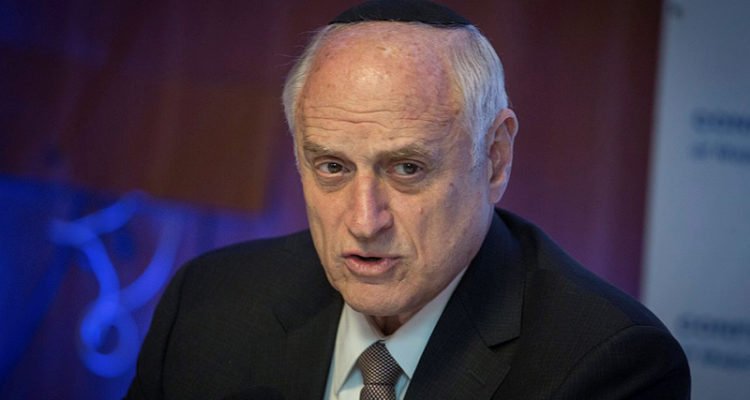
December 29, 2021
“No such body has been created to investigate Hamas, despite its many rocket attacks targeting Israeli civilians and infrastructure.”
By Sharon Wrobel, The Algemeiner
Leaders of the Conference of Presidents of Major American Jewish Organizations voiced their dismay at last week’s majority vote at the United National General Assembly (UNGA) to fund a permanent, open-ended probe into alleged human rights abuses committed by Israel.
“We are appalled by the UNGA vote to approve an open-ended commission of inquiry solely focused on Israel’s response to the conflict initiated by the Hamas terrorist regime last May, also known as Operation Guardian of the Walls,” stated Conference Chair Dianne Lob, CEO William Daroff and Vice Chair Malcolm Hoenlein on Monday. “We vehemently oppose this one-sided farce of a probe, which again demonstrates the clear anti-Israel bias in the U.N. body. Israel is the only member state in the history of the U.N. to be singled out for taking defensive military action to ensure the security of its civilian population.”
In May — when the resolution by the U.N. Human Rights Council was adopted to open an ongoing investigation into incidents that occurred both before and after April 13, 2021, in the wake of the Gaza war — Israel argued that its security forces “acted with the highest ethical standards, in accordance with international law, in defending our citizens from Hamas’ indiscriminate rocket fire.”
At the U.N.’s Fifth Committee session on budget approvals on Thursday, 125 countries rejected a proposed amendment by the Israeli representative to defund the permanent commission of inquiry, which it considers “discriminatory and biased.” Eight countries, including the U.S., Hungary and Papua New Guinea voted in favor, and 34 abstained.
“No such body has been created to investigate Hamas, despite its many rocket attacks targeting Israeli civilians and infrastructure,” the Israeli representative said. “This latest commission has an indefinite time frame with broad budgetary implications and redundant staff.”
According to research by the Jerusalem Center for Public Affairs (JCPA), a right-leaning Israeli think tank, the new commission will hire 24 permanent staff, compared to 20 permanent staff allocated for the Office of the U.N. High Commissioner for Human Rights covering all of Asia. The annual budget for the Israel commission in the first three years is set to be almost five times the median cost of other investigative mechanisms created by the U.N. Human Rights Council, and it will “fund 790 days of travel for experts and staff every year from 2022 on – forever,” the JCPA said.
“This inquiry will cost more than all but one of the 33 investigative mechanisms ever created by the Human Rights Council in its 15-year history. The single exception is the distinguishable case of Myanmar,” the JCPA wrote in a recent report.
Also speaking at Thursday’s U.N. meeting, the U.S. representative Patrick F. Kennedy argued that the “unprecedented open-ended mandate of this commission of inquiry […] perpetuates a practice of unfairly singling out Israel in the U.N.”
“The United States will continue to oppose this commission of inquiry and look for opportunities in Geneva to revisit its mandate,” Kennedy said. “Israel can continue to count on the United States to do everything possible to shield it from discriminatory and unbalanced criticism, whether at the Human Rights Council or elsewhere in the U.N. system.”
David Roet, Director General of the North American Affairs Division at Israel’s Foreign Ministry thanked the U.S. for “standing up against discrimination, biases and the singling out of Israel at the U.N. Human Rights Council and other international forums.”
“Tragically far too few do the same,” Roet tweeted.